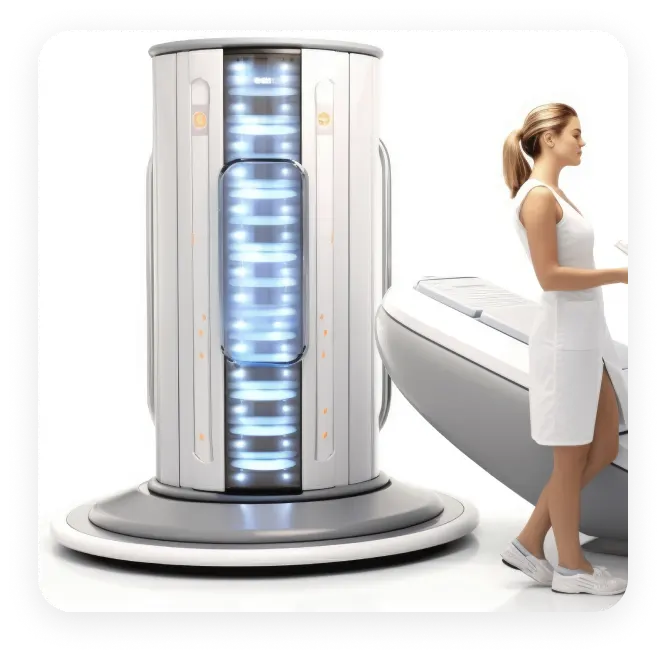Skin Procedure
Did you know?
Skin is a mirror of your body’s health. By taking care of your skin, you not only enhance its ability to protect you from illness but also prevent future issues like wrinkles and skin cancer.
Good skin care provides significant social and mental benefits. It leaves a positive impression when meeting others and boosts self-esteem, providing an extra spring in your step. Since the skin is the most visible part of your body, prioritising skincare is key to feeling confident and looking your best.
The various types of Skin Procedures include
A. Cryo Treatment
Cryotherapy utilises extreme cold, typically liquid nitrogen, to destroy tissue. It is commonly employed in the treatment of skin lesions, which are abnormal skin growths or patches.
Types of Lesions Treated
- Benign lesions (non-cancerous)
- Actinic keratosis: Precancerous skin growths resembling scaly patches
- Superficial skin cancer: Skin cancer present on the skin's surface

Procedure
- Liquid nitrogen is sprayed onto the targeted area to freeze and destroy the lesion.
- Cryotherapy aims to preserve surrounding tissue and minimise scarring.
Preparation
Patients typically do not need to take specific preparatory measures before undergoing cryotherapy. However, removal of makeup, lotion, or powder from the treatment area may be necessary.
B. Biopsy
A skin biopsy involves the removal of cells or skin samples from the body's surface for diagnostic purposes.
Purpose of a Biopsy
- Diagnose or rule out various skin conditions and diseases.
- It is used to remove suspicious skin lesions.
- Actinic keratosis
- Blistering skin disorders like bullous pemphigoid
- Inflammatory skin conditions such as dermatitis and psoriasis
- Skin cancers including basal cell carcinoma, squamous cell carcinoma, and melanoma
- Skin infections
- Skin tags
- Suspicious moles or growths
- Warts
Treatment and Options in Clearwater, Seminole and Palm Harbor At All Care
Skin biopsies provide essential information to aid in the diagnosis and treatment of a wide range of skin-related concerns, including cancerous and non-cancerous conditions. Schedule an appointment with us today or call us as at All Care we believe
"Healthy skin is a reflection of overall wellness. Nurture it, cherish it, and let it glow from within."
Give Your Skin Some Love





